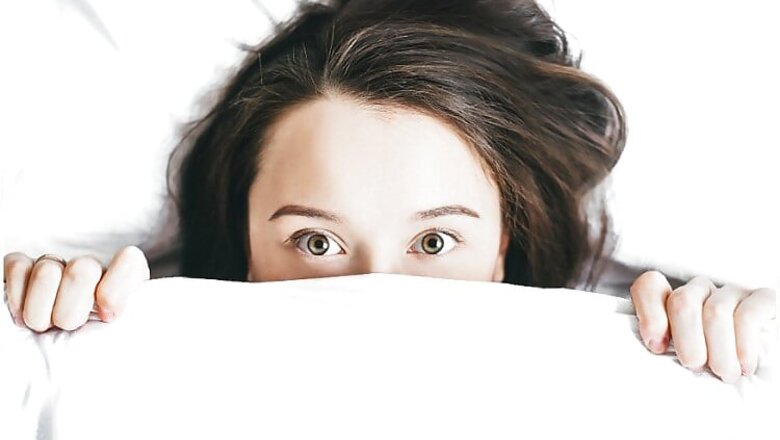
views
Sleep is a basic necessity of life, just like breathing or eating. Sleep deprivation, either due to a sleep disorder or any other reason, can really mess up your everyday life. Irritability, lack of concentration and mood swings are some of the common signs of sleep deprivation.
However, missing your sleep schedule can do more than just making you cranky and klutzy. Lack of sleep can affect various systems of your body including your respiratory system, digestive and cardiovascular system. Some signs of sleep deprivation are not as apparent as others.
Here are four such signs that indicate that you need to take a break and catch up on your sleep:1. Skin problems
One of the most common signs of sleep deprivation is the manifestation of skin problems. Lack of adequate sleep can cause an increase in the levels of the stress hormone cortisol in your body, which leads to inflammation and conditions such as acne, eczema and psoriasis.
Sleep deprivation also affects collagen production. Collagen is a protein that is responsible for maintaining skin strength and lack of this protein causes the skin to start sagging and ageing more quickly.2. Hunger pangs and weight gain
According to the National Sleep Foundation, USA, sleep deprivation increases the levels of a neurotransmitter called endocannabinoid in the body which has a marijuana-like effect on the brain. It makes you enjoy eating more than normal, especially unhealthy foods like candies, chips and cookies.
Sleep deprivation also leads to an increase in the levels of ghrelin (the hormone that stimulates hunger) while at the same time reducing the levels of leptin (the hormone that suppresses hunger).
In fact, sleep-deprived people could end up consuming almost twice as much fat as other people. All this extra eating eventually leads to weight gain.3. Infections
If you have suddenly found yourself getting a cold or flu more frequently, then it may be time to check your sleep schedule. Experts say that when you sleep, your body produces cytokines that help you fight infections and mediate inflammation in your body. Also, while you sleep, your body produces more T-cells, a type of immune system cell that fights viral infections
As a result, when you don’t get enough shut-eye, you become more prone to the common cold and the flu. According to the National Sleep Foundation, USA, chronic sleep deprivation may even make your body unable to respond properly to a flu shot.4. Low libido
Experts suggest that when you don’t get enough sleep, it causes depression and anxiety, both of which lead to sexual dysfunction.
When you are stressed, your body suppresses the production of sex hormones like testosterone and estrogen, which can affect your libido. It can also lead to problems like erectile dysfunction and infertility.
On the flip side, sex before bed can improve your sleep quality.How much sleep should you get per day?
There is no exact estimate for how much sleep a person needs every day, it varies with age. According to the National Sleep Foundation, anybody between the age of 18 and 64 should get at least seven to nine hours of sleep every night. However, it is best to pay attention to your body’s demands.To know how to catch up on sleep, read our article on How to fall asleep.Health articles on News18 are written by myUpchar.com, India’s first and biggest resource for verified medical information. At myUpchar, researchers and journalists work with doctors to bring you information on all things health.




















Comments
0 comment